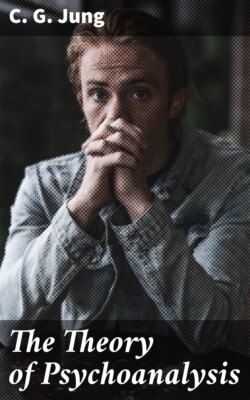Читать книгу The Theory of Psychoanalysis - C. G. Jung - Страница 7
На сайте Литреса книга снята с продажи.
The Traumatic Theory Criticized
ОглавлениеTable of Contents
Although, as a matter of fact, the discovery of Breuer and Freud is certainly true, as can easily be proved by every case of hysteria, several objections can be raised to the theory. It must be acknowledged that their method shows with wonderful clearness the connection between the actual symptoms and the shock, as well as the psychological consequences which necessarily follow from the traumatic event, but nevertheless, a doubt arises as to the etiological significance of the so-called trauma or shock.
It is extremely difficult for any critical observer of hysteria to admit that a neurosis, with all its complications, can be based on events in the past, as it were on one emotional experience long past. It is more or less fashionable at present to consider all abnormal psychic conditions, in so far as they are of exogenic growth, as the consequences of hereditary degeneration, and not as essentially influenced by the psychology of the patient and the environment. This conception is too narrow, and not justified by the facts. To use an analogy, we know perfectly well how to find the right middle course in dealing with the etiology of tuberculosis. There are, of course, cases of tuberculosis where in earliest childhood the germ of the disease falls upon a soil predisposed by heredity, so that even in the most favorable conditions the patient cannot escape his fate. None the less, there are also cases where, under favorable conditions, illness can be prevented, despite a predisposition to the disease. Nor must we forget that there are still other cases without hereditary disposition or individual inclination, and, in spite of this, fatal infection occurs. All this holds equally true of the neuroses, where matters are not essentially different in their method of procedure than they are in general pathology. Neither a theory in which the predisposition is all-important, nor one in which the influence of the environment is all-important, will ever suffice. It is true the shock-theory can be said to give predominance to the predisposition, even insisting that some past trauma is the condition sine qua non of the neurosis. Yet Freud’s ingenious empiricism presented even in the “Studies in Hysteria” some views, insufficiently exploited at the time, which contained the elements of a theory that perhaps more accentuates the value of environment than inherited or traumatic predisposition.
